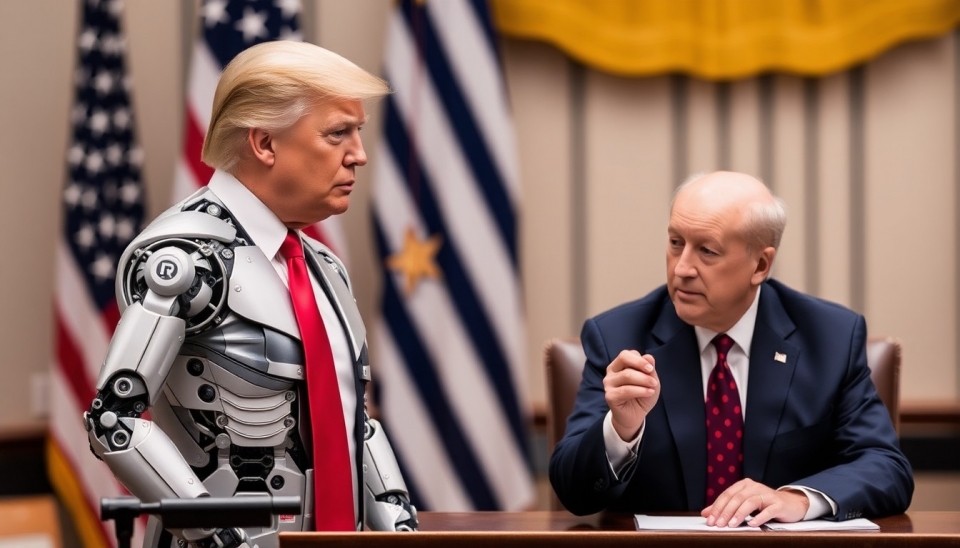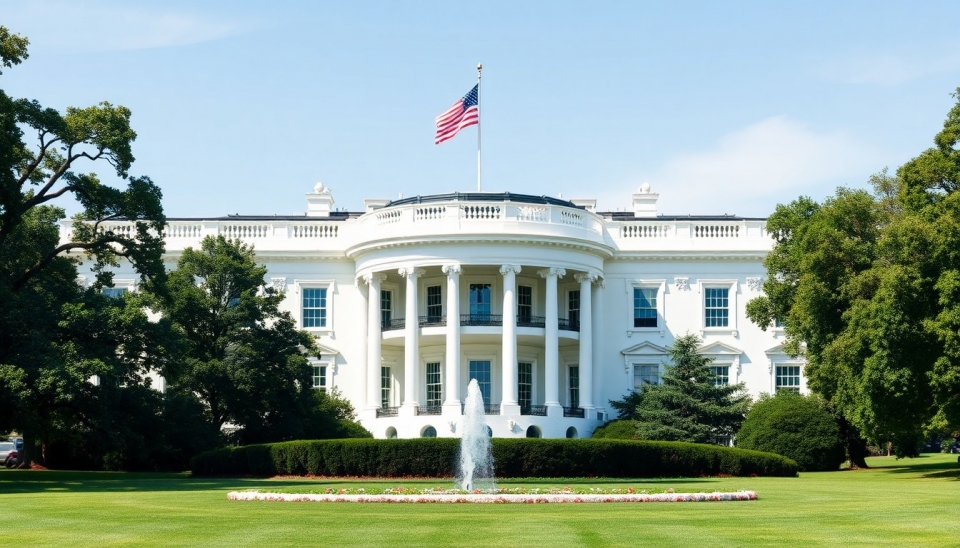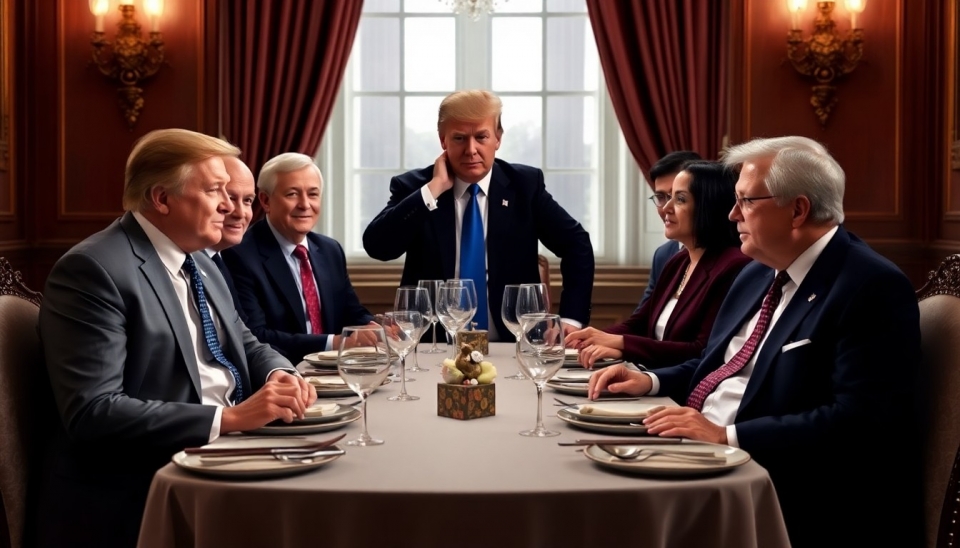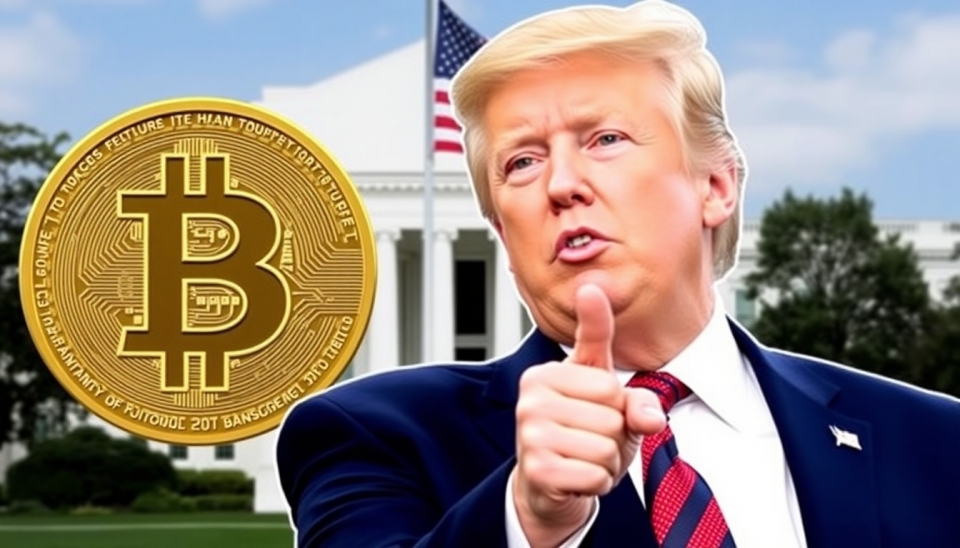
In a striking development that could impact his presidential ambitions, former President Donald Trump’s fervent embrace of artificial intelligence (AI) technologies is being jeopardized by the escalating tariff costs affecting U.S. businesses. The implications of these tariffs, implemented across a variety of sectors, notably influence the integration of AI, potentially stalling technological advancements that Trump has advocated as essential for maintaining America's competitive edge on the global stage.
Amidst an increasingly digital landscape, Trump has frequently professed his belief in the transformative power of AI, consistently highlighting its potential to drive economic growth, enhance national security, and elevate the U.S. workforce. However, as tariffs on critical components and materials rise, many businesses are finding it increasingly difficult to invest in these cutting-edge technologies. The added costs of sourcing materials from overseas due to trade tensions are squeezing profit margins and limiting funds that could otherwise be allocated to innovative projects.
The situation draws attention to a paradox within Trump's economic revival plan, which champions technological advancement while simultaneously imposing tariffs that undermine that very framework. Companies seeking to develop or integrate AI solutions may face delays and increased operational costs as they navigate a complex landscape of trade policies.
Experts warn that if these rising costs continue to burden U.S. businesses, the nation’s technological leadership could begin to erode. Rivals such as China, which have invested significantly in AI development without the encumbrance of heavy tariffs, stand to gain a competitive advantage. As the former President rallies support from his base for his initiatives, he faces a critical challenge: reconciling his pro-AI stance with the tangible effects of his economic policies.
Furthermore, as businesses grapple with the repercussions of tariffs, the wider implications for the labor market and technological readiness become evident. Tech companies, startups, and traditional industries may find it harder to hire skilled workers who specialize in AI, potentially stunting the future growth of sectors that are critical for America’s continued innovation.
In light of these circumstances, stakeholders in the tech industry, along with lawmakers, are calling for a reevaluation of the current tariff framework. They emphasize the need for policies that can foster a conducive environment for technological growth without incurring prohibitive costs. Without such interventions, Trump's vision for an AI-driven economy may become increasingly unattainable, jeopardizing both his political future and the nation's technological standing.
As the situation unfolds, the tech community remains watchful, hoping for strategies that will align Trump’s rhetoric on innovation with actionable policies that enable businesses to thrive in a rapidly evolving landscape.
In conclusion, while the former President's advocacy for AI positions him as a forward-thinking leader, the practical realities of his economic policies pose a serious threat to the very advancements he champions. Addressing these tariff-induced challenges may be a critical factor for Trump's strategy heading into the next electoral cycle.
#Trump #AI #Tariffs #Technology #Economy #Business #Innovation #2024Election
Author: Emily Collins




